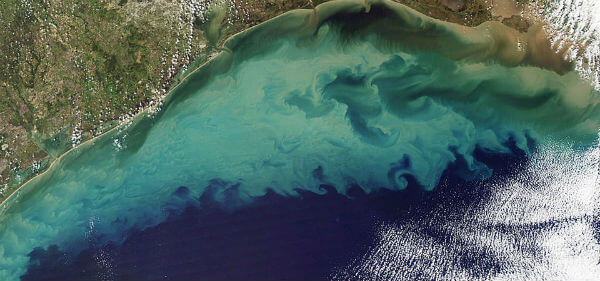
Moises Velasquez-Manoff writes: It was crabbers who first reported something amiss. In 2002, they began pulling in traps full of corpses. (Crabs should be alive when you catch them.) And they mentioned something else: Little octopuses had followed their crab lines to the surface, as if fleeing inhospitable conditions below.
Then heaps of dead crustaceans began washing ashore along a stretch of Oregon’s coast. When scientists sent a robotic submersible offshore, they discovered mile upon mile of dead crustaceans, the water brown and murky with detritus.
The killer was low oxygen, or hypoxia. Nearly all animals require oxygen to live, and, that year, dissolved oxygen had fallen so low off Oregon’s coast that whatever mobile creatures could had fled, while more-sessile life had simply suffocated.
Every year since, those hypoxic waters have appeared in late summer and early autumn. In 2006, they became anoxic, meaning they lost all their oxygen. “You didn’t see a single fish in a day,” says Jack Barth, a professor at Oregon State University, “just the piles of crab carcasses and worms that had come out of the bottom, sort of wafting in the current.” When scientists examined the roughly 50-year record of oxygen measurements from the region, they couldn’t find a single comparable event in the past. The hypoxia, it seemed, was unprecedented.
And then it spread.
In 2013, low-oxygen water showed up off the California coast just north of San Francisco. The following year, crabbers pulled in dead crabs in Half Moon Bay, just below San Francisco. Further south, the Monterey Bay Aquarium registered a decline in the oxygen content of the water it pumps in from the ocean.
“It seems like something has changed,” says John Largier, head of the Coastal Oceanography Group at the University of California-Davis. He tries to remain skeptical, but he suspects “large-scale global change.”
These suffocated patches of ocean aren’t just bad for fishermen and their catch; they represent a change in the ocean that has, at times in Earth’s past, heralded mass extinction. [Continue reading…]

